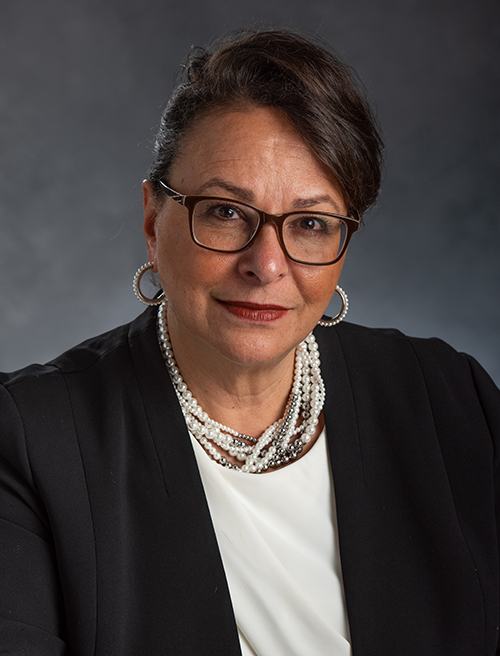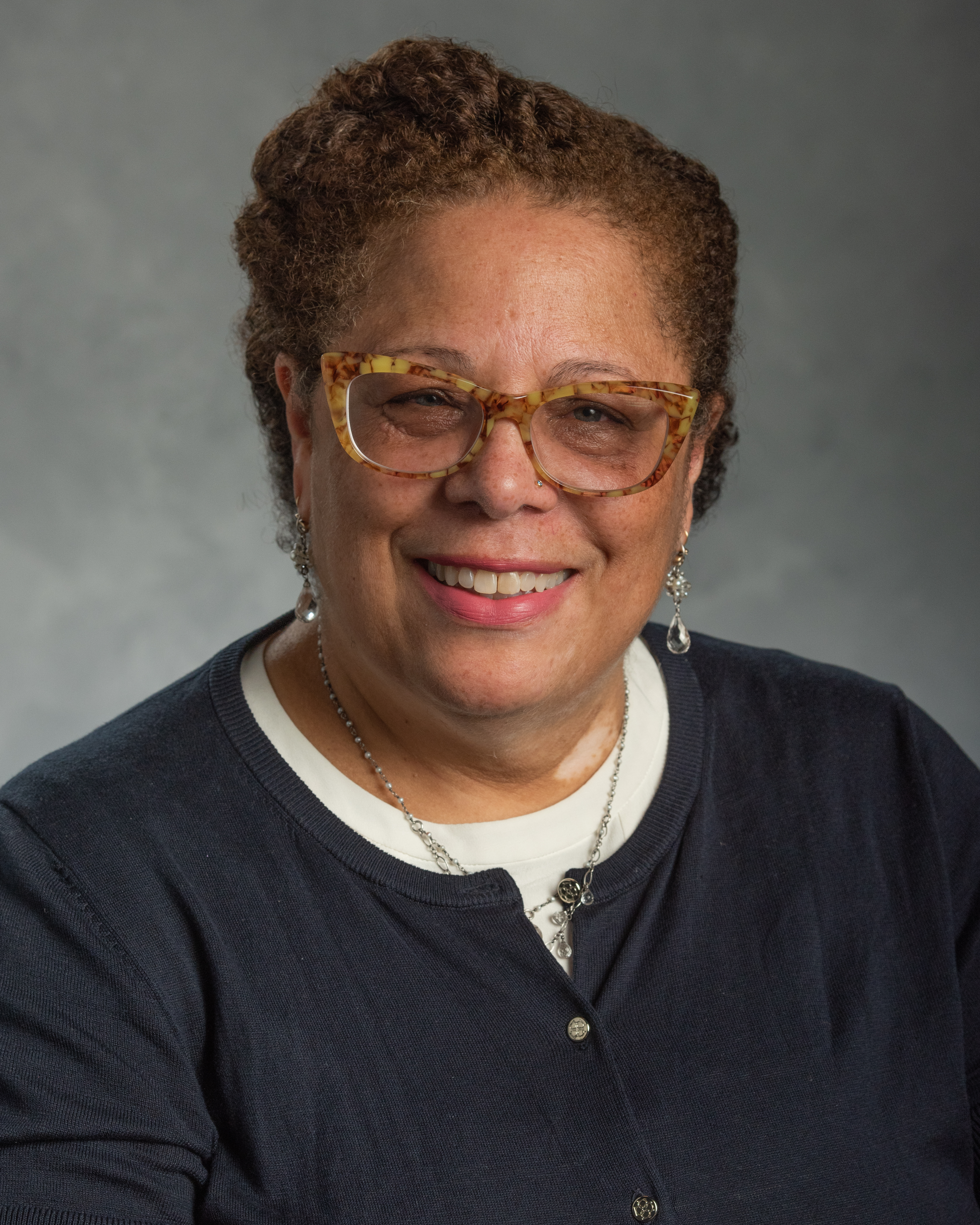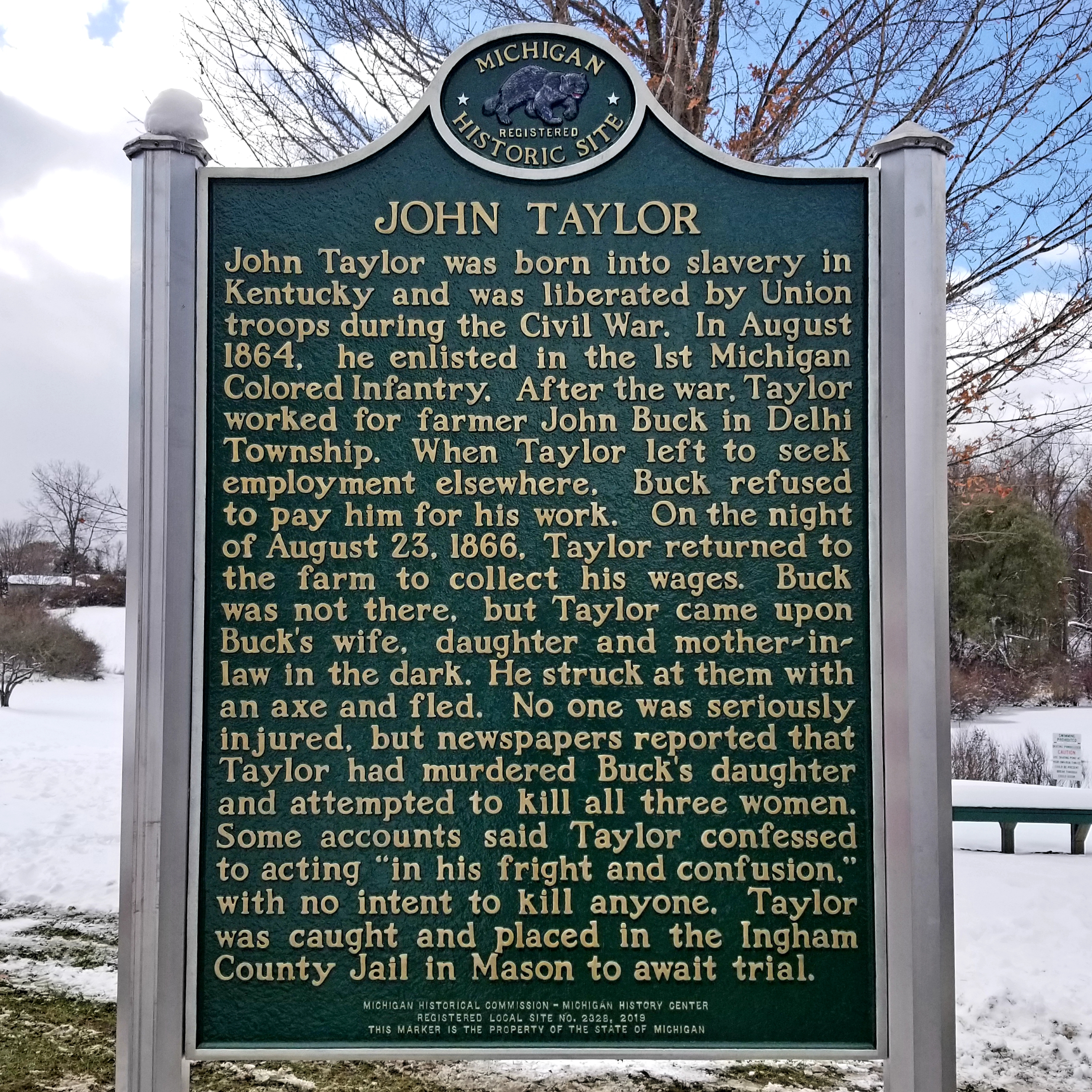August 2020 Update
-
Tribute to Paulette Granberry Russell
 Paulette Granberry Russell joined Michigan State University in 1998 as its senior diversity officer, and director of the Office for Affirmative Action and Compliance and renamed in 2007 as the Office for Inclusion and Intercultural Initiatives (I3). Responsible for facilitating MSU’s efforts to advance a more diverse, equitable and inclusive campus community, the focus of the office includes cutting-edge DEI (diversity, equity, and inclusion) education and development programs, community outreach efforts that include university-wide events and programs, workforce diversity initiatives, campus climate assessments and support for faculty of color and diversity scholars through the Diversity Research Network.
Paulette Granberry Russell joined Michigan State University in 1998 as its senior diversity officer, and director of the Office for Affirmative Action and Compliance and renamed in 2007 as the Office for Inclusion and Intercultural Initiatives (I3). Responsible for facilitating MSU’s efforts to advance a more diverse, equitable and inclusive campus community, the focus of the office includes cutting-edge DEI (diversity, equity, and inclusion) education and development programs, community outreach efforts that include university-wide events and programs, workforce diversity initiatives, campus climate assessments and support for faculty of color and diversity scholars through the Diversity Research Network. Paulette’s decades of work at MSU and beyond earned her a reputation as an important voice in the national DEI conversation. In March of 2020, Paulette became the first woman president of the National Association of Diversity Officers in Higher Education. NADOHE has a membership of over 300 two and four-year public and private colleges and universities, representing approximately 1000 senior diversity officers and diversity professionals across the country.
Paulette presents nationally and internationally; her work has taken her to South Africa, Tanzania, Senegal, Burkina Faso, Brazil, and the United Kingdom. She has presented on topics including equal opportunity, affirmative action in higher education, gender equity, strategies for retaining a diverse workforce, and creating inclusive work and learning environments.
Along with her array of professional achievements—she is also a sought-after speaker and a licensed attorney in the state of Michigan—she considers her greatest accomplishment that of being a mother to her children, Ronnie and Kat, who inspire her every day to be her best self.
During her twenty-two-year tenure leading MSU’s DEI efforts, Paulette developed a reputation as a strong and visible leader whose efforts, along with those of the office, were informed by research, and who implemented strategies that were evidence-based. Never afraid to speak her mind, she valued leading with empathy and integrity recognizing that creating an equitable and inclusive campus required both. At the core of her sensibilities regarding institutional equity efforts was a predilection for action over rhetoric. This is evident in the many initiatives and projects that bear her stamp.
In Paulette’s early career at MSU, she was instrumental in helping the university navigate the challenges to regarding diversity as a compelling interest in higher education admissions and programs (Grutter/Gratz v Univ, of Mich) and the challenges associated with the 2006 amendments to the State of Michigan’s Constitution (Proposal 2), which prohibits universities from “granting preferential treatment on the basis of race, sex, color, ethnicity, or national origin,” while still making diversity, equity, and inclusion priorities.
Over the course of Paulette’s service, I3 has been devoted to helping other on-campus units in tangible ways: they developed a resource database to help units identify recruitment resources for advancing workforce diversity and provided direction on where and how to support their hiring efforts; conducted campus climate surveys of faculty, students, and staff; actively engaged with the NSF ADVANCE Grant, working collaboratively with the Office of the Provost and co-PIs of the grant in the development of toolkits for faculty searches, mentoring, annual reviews and promotion and tenure and contributed to changes in policies to support and advance women in STEM, and initiated the development of the Diversity Research Network, after completion of a qualitative research study on the lived experiences of minority tenure system faculty at MSU. In addition, the office is responsible for convening the President’s Advisory Committee on Disability Issues, counting as one of its accomplishments the development of the university’s Web Accessibility Policy; secured internal funding for what continues to be known as the Creating Inclusive Excellence Grant program that is designed to seed campus efforts to advance DEI across units, across colleges, across discipline; created cutting edge education and development programs including the Implicit Bias Certificate series; MSU Dialogues, Learn at Lunch series, Racial Literacy and many, many more.
The office has not limited their efforts to MSU’s campus during her tenure. Paulette has always said, “building relationships in DEI work is one of the key elements for success,” and this is clear when one examines the framing of the Office of Inclusion’s community-engaging events which commemorate and celebrate the efforts of those who have led and continue to contribute to creating a more just society and campus community.
Each year, MSU’s campus comes alive on Martin Luther King Day with a host of events open to the public: commemorative celebration films, jazz concerts, poetry readings, speeches, commemorative dinner, and a march of solidarity make MSU an ideal place to celebrate the legendary leader.
Similarly, each year’s MSU César Chávez & Dolores Huerta Commemorative Celebration celebrates the struggle for farm worker and Xicano rights in a multitude of community-engaged ways. Speakers, films, workshops, and a march make the day one to remember for campus and the surrounding community.
The Excellence in Diversity Awards has expanded under her leadership to recognize emerging, sustained, and lifetime leadership among students, staff, and faculty to advance diversity, equity, and inclusion at Michigan State.
Making MSU a force that welcomes and empowers minoritized groups has always been a priority for Paulette. This priority is reflected in the 2017 introduction of the Becoming Visible program, which partners MSU with LCC, McLaren and Sparrow health systems, and Lansing public schools to engage and inspire young women of color to explore and consider the various health care programs available at LCC and MSU that will lead to increased diversity among women in health care professions in the Greater Lansing Community.
“There is nothing easy about this work. You have to have a passion and a strong commitment to building inclusive communities,” says Paulette. That commitment will remain a force at MSU as the work continues and builds on a long legacy of individuals who manifested a similar commitment to building a more equitable and inclusive MSU.
Anyone doing DEI work inevitably faces obstacles ranging from indifference to institutional inertia. Paulette has spent her career doing this work at a level where effecting real change can be taxing and challenging. But she has left an indelible mark in MSU’s efforts to be a place where every student can flourish.
Her optimism and warmth are always present, whether in casual conversation or when speaking to a large group, because she carries a vision for a more equitable world within her. The world outside MSU is fortunate that she now carries that vision to new horizons.
-
Message from the Interim Director
 Dr. Deborah Johnson, interim director & director of MSU’s Diversity Research Network
Dr. Deborah Johnson, interim director & director of MSU’s Diversity Research NetworkWelcome new and returning faculty, students and staff! In light of the pandemic and a summer of protests that have impacted us locally, nationally and globally, you are entering a deeply modified educational environment. At MSU, our adjustments have been intense and swift, and the Office for Inclusion and Intercultural Initiatives is committed to continue to be a focal point for promoting diversity, equity, and inclusion at Michigan State University and for advancing a culture of inclusion.
Paulette Granberry Russell, Senior Advisor to the President for Diversity, Emeritus, represented 22 years of important DEI innovation at MSU. I am pleased to follow her deep legacy for this interim period. Facing new changes and challenges in this moment, we are prepared to support President Stanley, Provost Woodruff, and dedicated staff, students, and faculty in deepening the DEI transformation underway and aligned with our longstanding values of inclusive excellence.
In my interim role, I intend to see us through the critical provision of online anti-bias training for the entire campus, as mandated by the President, revision of numerous aspects of our education and development offerings for online availability, continued support of diverse scholars and diversity scholars via the Diversity Research Network (DRN), outreach to campus and the greater Lansing community, as well as preparation of the office for a new Vice President and Chief Diversity Officer.
Our website offers a critical space for sharing information, learning and support. Again, we welcome you back to the rich and robust educational setting that is MSU and wish you an excellent, safe and healthy year. We are here for you!
-
The Anti-Racist Path training
Members of I3's education team, Jackie Heymann and Lynn Lammers, have partnered with Lisa Laughman, Dr. Deborah Johnson, Dr. Patricia Stewart, Kendra Pyle, Eric Walcott, Lydia Weiss, and Robert Logan to create The Anti-Racist Path, a five-week series that introduces concepts and skills that move participants in the direction of taking informed and intentional anti-racist action.
Topics covered include systemic racism, white fragility, dialogue skills, shame, and emotional resilience, among others. The response to this series has been overwhelming, so it may be offered again in the fall.
-
Memorializing John Taylor, Teenage Veteran and Lynch Mob Victim

by Jacob McCormick
“Dead Man’s Hill,” a beloved park in Delhi Township, carried that name for generations. Its location may have falsely tied it to a lynching that took place in Ingham County. In 2018, the story of John Taylor’s lynching was raised by a retired Holt school teacher via a column in the Lansing State Journal. That story brought the memory of John Taylor into the 21st century, piquing the interest of many community members, and raising the question of the park’s name, deemed callous as an anonymous monument to a murder.
John Taylor was born enslaved in Kentucky in the 1840s. During the early years of the Civil War, he was liberated by Union troops and moved north to Michigan. By 1864, Taylor enlisted in the 1st Michigan Colored Infantry, which shortly joined the 102nd U.S. Colored Infantry Regiment. His service lasted thirteen months. Upon his separation of service, he was just 17 years old but had experienced much in his life already.
After the war, Taylor came to mid-Michigan and worked as a farmhand in Ingham County’s Delhi Township for farmer John Buck. A presumed pay dispute led Taylor to leave Buck’s employ and move on to another local farm.
It is alleged that on the evening of August 23, 1866, Taylor returned to the Buck farm to collect the pay due to him. During Taylor’s return to the farm, John Buck himself was away and accounts allege that Taylor came into contact with Buck’s wife, daughter, and mother-in-law. It is said that he picked up an axe from the farm to defend himself and during the interaction with the three women, allegedly struck them with the axe and fled.
Law enforcement officials from Lansing are alleged to have tracked Taylor and arrested him near Bath in Clinton County. According to some period accounts, it was reported that Taylor confessed to the confrontation under duress from Lansing officials, who then transferred him to the Ingham County jail in Mason and into the care of Ingham County Sheriff Frederick Moody.
The false story of an axe murder spread throughout the area very quickly, citing the death of the three Buck women. Contrary to the falsehoods that spread, Buck’s wife, daughter, and mother-in-law lived 18, 31, and 24 years, respectively, after the alleged incident. A mob, made up of farmers from Ingham County and beyond, formed as a result of the triple-murder rumor.
A group of concerned citizens are said to have approached Sheriff Moody, bringing the mob to his attention and informing him of the mob’s intention of removing Taylor from jail and taking the law into their own hands. Moody apparently declined to put any additional safeguards in place at the jail, trusting the existing system and security.
Four days after the alleged incident, on August 27, 1866, Taylor was seized from the Ingham County jail in Mason by the mob which had formed over the prior 96 hours. The mob took John Taylor to a tree near the Mason Depot and lynched him. The group had concluded his guilt with no due process. Because of the gruesome death suffered by Taylor, his remains have been lost to time and his final resting place is unknown.
It is believed that he was originally buried on the Hogsback, a glacial esker which traversed the landscape between Mason and St. Johns. The Hogsback was prominent through Delhi Township. Though mined decades ago for its gravel and sand, the location of the Hogsback can be traced by the water-filled gravel pits which follow its footprint. A popular winter recreation site, “Dead Man’s Hill’s” location adjacent to the Hogsback may have falsely tied it to Taylor’s murder and a local history publication in the 1980s incorrectly identified the park as Taylor’s final resting place.
Nobody was ever held responsible for Taylor’s murder. A grand jury was summoned in January 1867 and brought indictments against five local men. Charges were dropped against four of them. One person was tried but acquitted for the crimes associated with Taylor’s death. A notable player in the trial was assistant prosecutor Austin Blair, who had just served two terms as the abolitionist wartime Governor of Michigan.
When the park was first gifted to Delhi Township in 1972, the name was intensely discussed for many months, though ultimately the topic was dropped. The Delhi Township Parks Commission again discussed the name in the 1980s, but not for another three decades did any action occur on the topic. In 2018, following the widely read newspaper column, the Parks Commission appointed a citizens committee to research, discuss, and provide a recommendation to the Commission on how to address the history and name of the park moving forward.
In just three short months, the committee recommended that the park name be changed to “John Taylor Memorial Park.” The Parks Commission acted on the recommendation and the name change was swift. The community movement surrounding John Taylor doesn’t end there, however. Over the ensuing 16 months, more than 100 pages of research, including primary documentation, were submitted to the Michigan Historical Commission for the purpose of obtaining a Michigan Historical Marker designating John Taylor as a historic person in Michigan’s history and formally telling his story.
John Taylor’s murder is just one of a handful of recorded lynchings in Michigan’s history. Lynchings are most often associated with the American south. The fact cannot be ignored, however, that these heinous murders occurred throughout the north, in the Midwest, and right here in our own backyard.
In November 2019, Delhi Township erected a Michigan Historical Marker in John Taylor Memorial Park, creating a lasting monument to a long-forgotten man who met a gruesome fate in our community. Other efforts to remember John Taylor locally are ongoing. But today, the beloved park, once marked with a grim and anonymous name, now educates residents and visitors alike of the young man whose life was cut short at the hands of a mob more than a century and a half ago.
Taylor’s lynching is a dark and hugely important piece of Ingham County’s history. Often ignored as a scar on an otherwise average Midwestern community, no more can the generations-old atrocity be hidden from view. Our history is our history – the good, the bad, and the ugly – and all aspects must be addressed head-on for today’s residents to see.
About the Author
Jacob McCormick is a lifelong Delhi Township resident. He earned a B.A. in History from Michigan State University in 2017 and is currently pursuing a M.L.I.S. degree from Wayne State University. McCormick is the founding president of the Holt-Delhi Historical Society and conducted the historical research on behalf of the citizens committee and Delhi Township.
-
President’s Mandate: DEI Foundations MSU e-Learning
In consideration of the recent and longstanding history of critical incidents the MSU community has experienced, and the additionally felt consequences, particularly among African Americans and other minoritized groups, President Stanley has mandated diversity, equity and inclusion e-learning for all MSU faculty, staff, students and administrators be available during Fall 2020. Representative groups from across the institution have strongly advocated for requisite education on bias and its many impacts on the culture and climate at the university and across the various roles inhabited by students, staff, faculty and administrators.
The I3 team is engaged in bringing this campus-wide opportunity to fruition via electronic means, much like the training offered by OIE on RVSM. The I3 team, along with community partners, are helping to craft the best online and companion experiences to achieve the goals of lasting impact on climate and antibias education.

